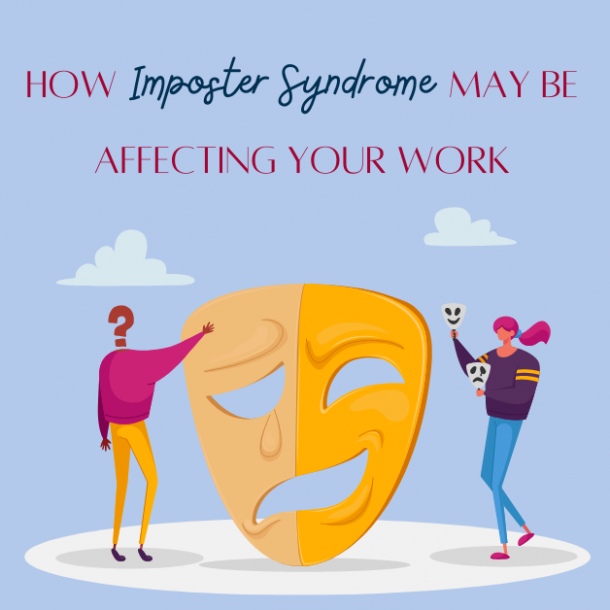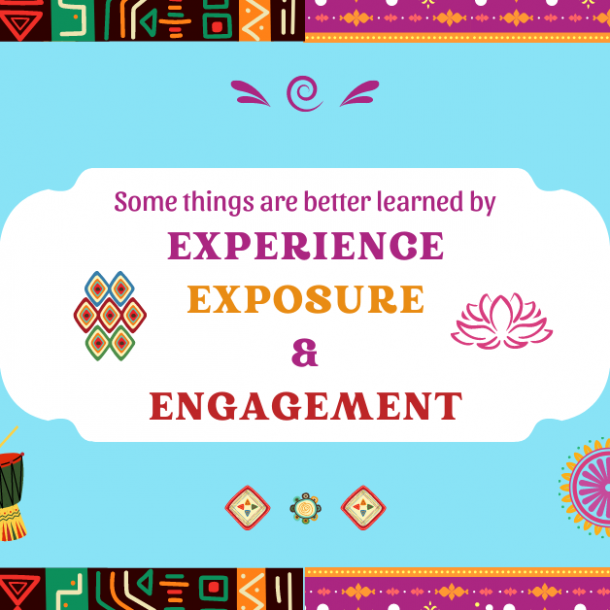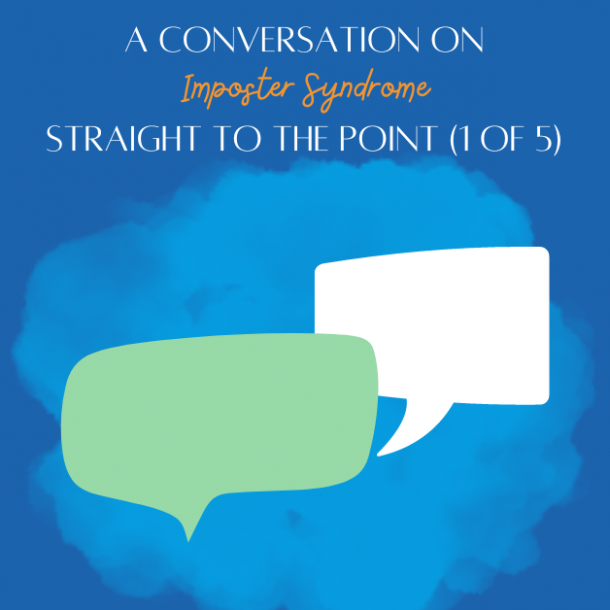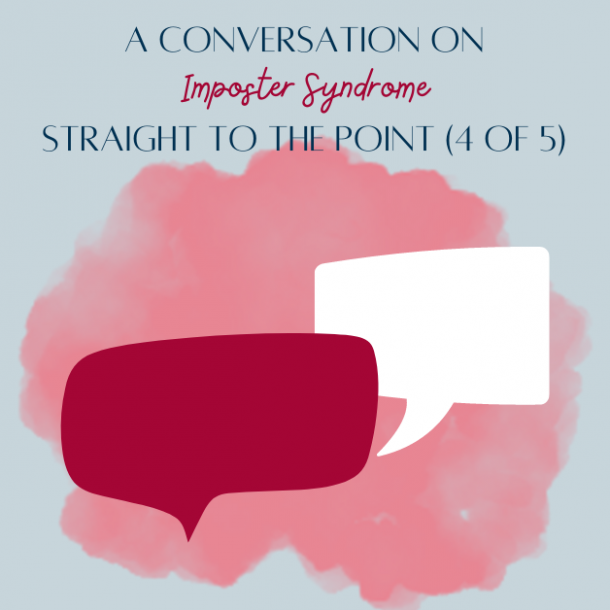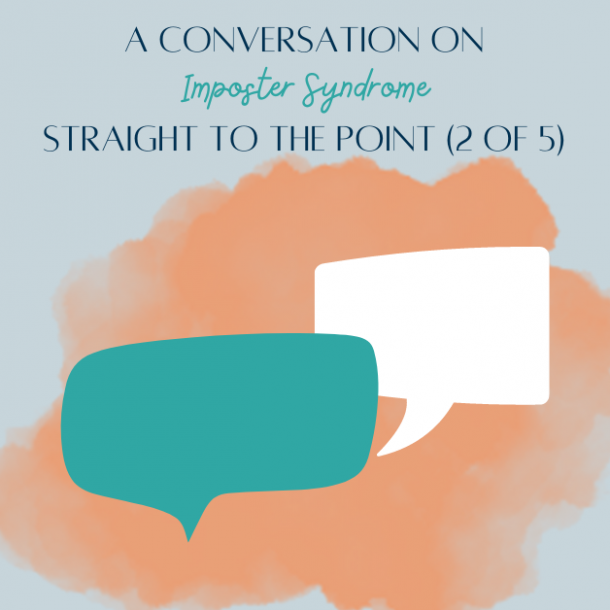
UpSkill: A conversation on imposter syndrome- Straight to the point (3 of 5)
In this blog post, we’re continuing the conversation on imposter syndrome, focusing on its connection to organizational structures, power, influence, vulnerability and collaboration.
As we touched on in Part II, imposter syndrome is linked to power dynamics. The power dynamics can be informal, like the ones we have in social situations. Or they can be formal, like the ones we may encounter in workplaces.
For formal environments, where there is a defined management level, we tend to focus on ranks or titles and forget about other types of power that we’re able to leverage.
Sometimes it starts with the smaller things that you do to navigate your working environment. This can be the relationships that you build, the people that you talk to, the connections that you make that provide you some level of personal power that outweighs your rank or title.
For Cadeem, he was able to build his confidence and show his level of expertise when his manager at moneywise.ca was replaced. He then had to work with the new manager — someone new to the company — and help her understand the different systems we use. So in that sense, he was being a source of guidance or an advisor as she started off, getting her up to speed with the company.
He had power in that sense, but not necessarily because he outranked her. He was just able to show that he has value and that helped his confidence.
We can show up powerfully at any level in an organization. At every level, you bring value.
I think one of the things, when we think about change, and change in our organizations, is that we expect to go in and turn the big ship around the same day.
We have to understand change happens one step at a time, one bite at a time. We have to bring that patience. And that’s why I always say, remember the saying “How do you eat an elephant? One bite at a time.”
Not all of us can influence at the next level or several levels above our heads, but that doesn’t mean there is no influence. It’s one drop in the bucket at a time.
Sometimes it is the leader that feels like the imposter in the organization. And this is why I say everyone has influence. How can we create a culture and environment where our leaders feel safe: Where they feel safe to say what they need to say and feel safe to take risks themselves. Some leaders are put on this place where they feel like they must be perfect.
And so, even though we feel this imposter syndrome from time to time, we have to work collaboratively to reduce imposter syndrome for all of us, because we are not the only people that are feeling it.
Realize that support is a two-way street.
For Cadeem, his imposter syndrome was reduced when he heard that one of the writers he works with views him as a great mentor.
Sometimes we have our hands out for others to support us, to provide the right tools for us to make us feel safe. Meanwhile, we’re not looking for opportunities to help others feel safe, to provide tools and so on.
Mentoring helps to reduce the imposter syndrome. That’s one of the keys that the research suggests, because if you are mentoring, you can confirm that you are adding value.
All of us have the ability and opportunity to mentor someone. There is someone out there who can benefit from something that you do.
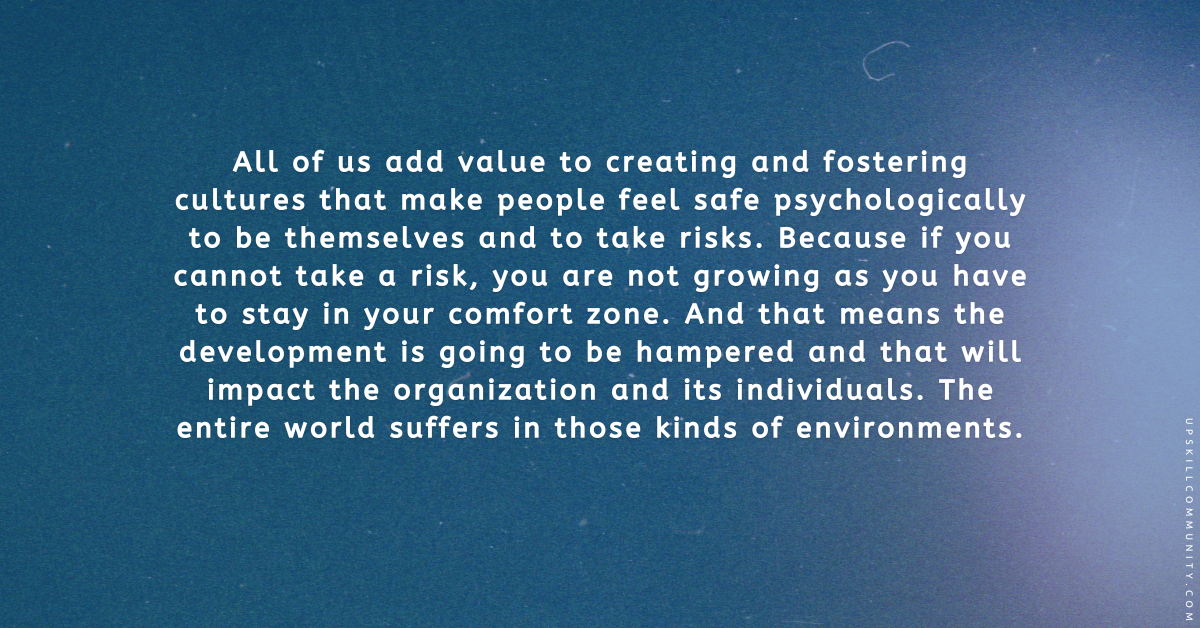
You can also be a “mentor” without being an “expert.”
The concept of the expert can facilitate imposter syndrome. As an expert, you need to show up knowing everything about everything, which is impossible.
An “expert” can be reframed as someone who asks important questions on these topics, as opposed to someone who comes with the content and all the knowledge on a topic. As we mentioned in the previous post, you can be an expert learner.
Some of these concepts that we use on a regular basis, such as “expert,” require reframing or re-examination as the world evolves. There’s no expert that can know everything, contextualize everything, make everything relevant to this great diverse world of people that we have.
##
Please take some time to consider the role that you’re playing in cultivating your organization’s culture. Are you contributing to a culture that weeds out imposture syndrome for you and for others? We’ll continue this conversation next week.

